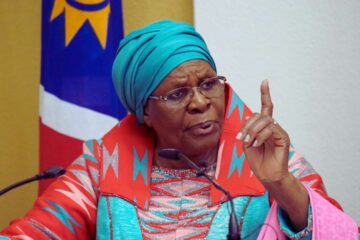Niël Terblanché
Efforts to reshape mineral export routes in Southern Africa have advanced with the Walvis Bay Corridor Group (WBCG) developing a new logistics corridor linking the Democratic Republic of Congo (DRC) to the port of Walvis Bay.
The North-Western Corridor will connect Kolwezi, a major copper mining area in the DRC, with Walvis Bay.
The corridor will run through Solwezi and Mongu in Zambia, then continue southwest to Katima Mulilo before reaching Walvis Bay.
WBCG chief executive officer Mbahupu Hippy Tjivikua said the project will include new roads and a border crossing between the DRC and Zambia. A concession agreement has been signed, and construction work is underway.
Tjivikua explained that current export routes through the Copperbelt and the Kasumbalesa border post are congested, causing delays and higher costs.
The new corridor will bypass these bottlenecks.
“The route will be approximately 235 kilometres shorter than the existing Walvis Bay–Ndola–Lubumbashi corridor and could cut travel times by up to seven days,” he said.
Copper demand is growing fast, driven by renewable energy and electric vehicles. The DRC is the world’s second-largest copper producer, with nearly three million tonnes per year.
Zambia aims to produce over one million tonnes annually. Tjivikua said the shorter transit time and reduced congestion will benefit exporters handling time-sensitive goods like copper.
The corridor will offer landlocked countries a more competitive and reliable path to global markets via Walvis Bay.
Tjivikua noted that infrastructure remains a challenge in many parts of Africa, but the North-Western Corridor will move away from outdated, overstretched logistics networks.
“It is about modernising regional logistics and creating a direct, streamlined path from the copper belts of Kolwezi and Solwezi to Walvis Bay,” he said.
The project will support regional integration by improving connections between the landlocked interior and Namibia’s coast.
Tjivikua said this will strengthen Southern Africa’s role in global trade and support wider development goals.
He said that the corridor could change how minerals are transported across the region, reduce reliance on ports in other countries, and boost economic growth in the DRC, Zambia, and Namibia.




